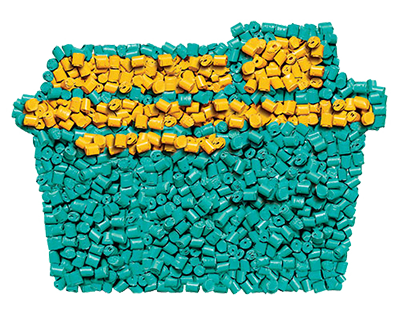
The current version of the Tecniplast website doesn't match your region. Please visit your local website to find information and offerings specific to your country.

The current version of the Tecniplast website doesn't match your region. Please visit your local website to find information and offerings specific to your country.



Thanks to the Re-Cage initiative, we foster the recycle of your end-of-life Polysulfone cages, cutting CO2 emissions and giving life to new, greener housing solutions.
No more waste logistics to manage, no more disposal cost at your expense: simply join Tecniplast trusted partners network to build together a better world.
Navigate though the sections below to find out more about Tecniplast’s Re-Cages, and partner with us to build a greener world!
Do you have end-of-life Tecniplast Polysulfone cages? Then contact your Tecniplast local representative to verify how to enter into the RE-Cage program.
What happens, then, to your cages during the RE-Cage journey?
RElieve your cage disposal process
Partner with us to create a greener world!
Be at Tecniplast’s side, sharing our initiatives

CO2eq kg per kg Polysulfone
CO2 SAVINGS
per PRODUCTION PROCESS
(including transportation to the Tecniplast facility)
CO2eq kg per cage base
CO2 SAVINGS
per SINGLE CAGE
(comparison GM500SU vs. EM500SU)
CO2eq tons
CO2 SAVINGS
of the Re-Cage program
considered as a whole

Melt Mass Flow Rate Index (MFR)
Measures how easily a plastic polymer flows when it is heated. A sample of the material is melted, and the rate at which it flows under a specific pressure is recorded.

Izod Impact Strength Test
Evaluates how well a plastic can withstand a sudden blow or impact without breaking. During the test, a notched sample of the material is struck by a hammer, and the energy absorbed before it fractures is measured

Density Determination
Measures the mass of a plastic material in relation to its volume. Typically, the material is weighed, and its volume is determined using methods like water displacement or geometric calculations

Tensile elastic modulus (MPa)
Measures how much force a plastic can withstand when being stretched before it breaks. The material is pulled until it deforms or snaps, and the test records the maximum force it can handle.

Heat Deflection Temperature (HDT) under Load
Measures the temperature at which a plastic material deforms when subjected to a specific load. The sample is heated while a constant weight is applied, and the temperature at which it starts to bend or lose its shape is recorded

DSC - Differential Scanning Calorimetry
Measures the heat flow into or out of a material as it is heated or cooled. This test provides information about the material's thermal properties, such as melting point, crystallization temperature, and glass transition temperature